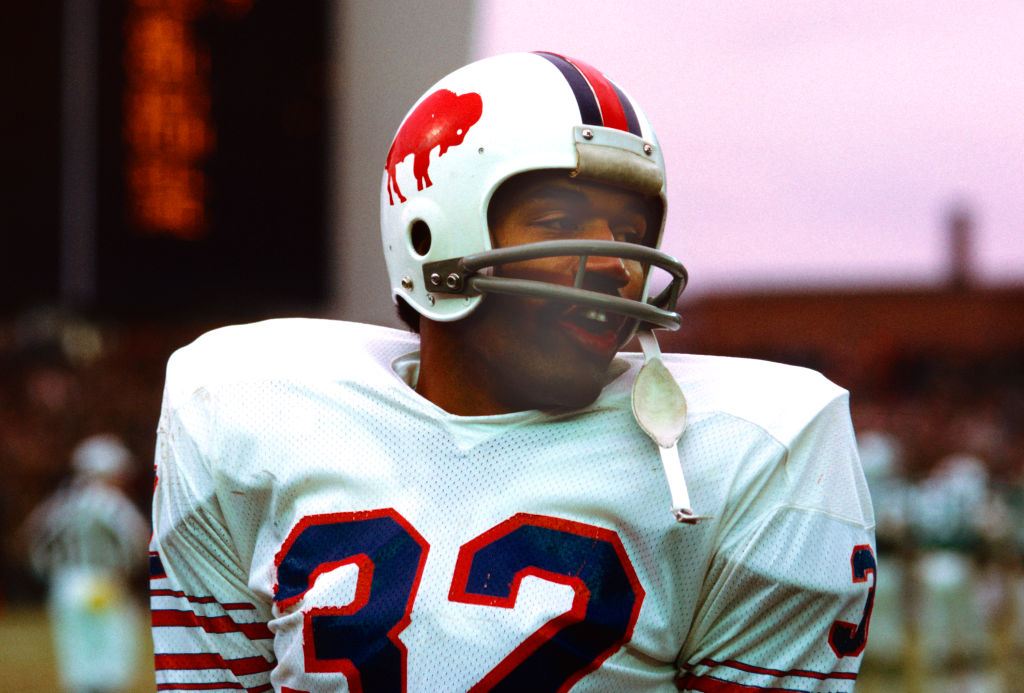
April 29, 2024
Testimony From O.J. Simpson In 1970 Trial May Have Set CTE Research Back Decades
A $3.6 million lawsuit was filed against helmet maker, Rawlings who used the former football player as a witness in a case that he helped win
Over 50 years ago, the family of a former running back who was paralyzed after suffering a helmet-to-helmet hit filed a lawsuit against Rawlings Sporting Goods, the maker of the helmet, citing that the helmet was responsible for him becoming paralyzed from the neck down. In this case, which took place in March 1970, Buffalo Bills running back O.J. Simpson provided testimony for Rawlings, helping the company win the case against the family of the injured football player.
According to The New York Post, Simpson’s defense of the helmet maker stymied the efforts of the NFL to look into the dangers of CTE (Chronic Traumatic Encephalopathy) for decades, based on what experts say. CTE is a progressive degenerative disease that inflicts people, mostly athletes (in particular, football players), who have suffered multiple concussions and traumatic brain injuries, according to the Indiana University School of Medicine. Most who have suffered from CTE aren’t diagnosed until after an autopsy of the brain after death.
Ernie Pelton, who was playing for Rio Linda High School in Sacramento, Calif., was paralyzed during a football game in 1967. His family sued the helmet maker for $3.6 million. Simpson was called as a witness for Rawlings, according to The Sacramento Bee. Simpson wore the helmet as a member of the Bills when he testified.
“I believe in this helmet,” Simpson stated. “I know every time I get on the field, there’s a chance I get hurt.”
When asked to read the warning label inside the Rawlings helmet, which stated that players should “avoid all purposeful contact,” Simpson responded, “I try, but haven’t succeeded.”
During the trial, attorneys for the company said “that the game of football is at stake” and asked Simpson if he knew about the sport’s inherent risks. “A person would be pretty ignorant if he didn’t know,” Simpson replied. “I know every time I get on the field, there’s a chance you can get hurt like the Pelton boy.”
Based on Simpson’s charm and testimony, the jury ruled in favor of Rawlings. Industry experts have claimed that due to the case, the verdict helped “shield the NFL for generations,” addressing the dangers of CTE.
“If Pelton won, it would have been devastating to football,” said Robert Erb, the CEO of helmet maker Schutt Sports from 2008 to 2020. “The NFL, NCAA, and high school football had to be relieved.”
Helmet liability expert Kimberly Archie said, “It made attorneys afraid to take on other cases.”
Although Simpson was cremated and his attorney stated that his brain would not be tested for CTE, Simpson admitted in 2018 in an interview with The Buffalo News that he was “concerned” he might have developed CTE while playing the sport.
“I do recognize that it probably affects you in short-term memory more than long-term,” he said. “I know with me, I have days I can’t find words. . . . That gets a little scary.”